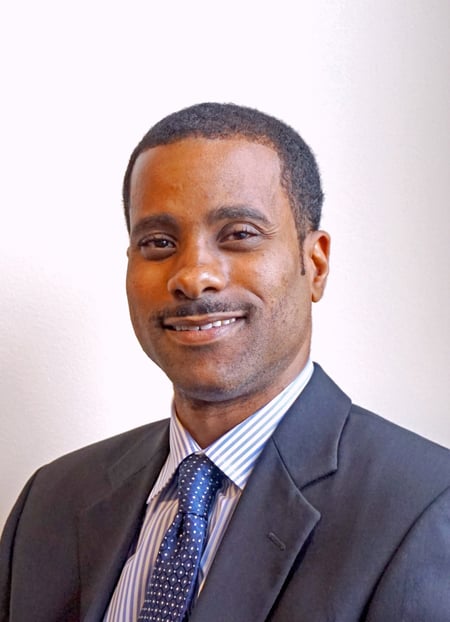Faculty Voice: Saluting Spartan students

Brian Johnson is an assistant professor in the Department of Human Development and Family Studies, and a Dean's Diversity, Equity and Inclusion Fellow.
As I teach during COVID, I can only imagine what it is like to experience a pandemic from the lens of a student. Using an ecological approach, they are impacted at every single systemic level. At the macro level, within the next few weeks, the number of COVID-19 related deaths is projected to reach a half million. Social justice issues continue to heighten the stress of the semester. In addition, the killings of unarmed, minoritized individuals weigh heavily. As if these stressors are not enough, months of election fatigue only worsened as we watched in horror last month’s riots at the Capitol.
At the micro level, students in my classes have suffered the loss of family members, jobs and the traditional face-to-face learning environment. When students log in for virtual class, they do not leave these stressors at the door.
Faculty are first human and, although we have the responsibility to instill knowledge, we must also promote a healthy learning environment. A year ago, as we transitioned to online learning, one of my biggest concerns was losing the safe environment for class dialogue that a face-to-face class setting provides. As we enter the year-anniversary of pandemic-related remote learning, although the current virtual environment continues to defy the traditional methods of learning and sense of community, the safe classroom environment remained. This is in no small part due to the efforts of my students. They taught me the importance of learning through a broader lens.
As a social scientist, I traditionally teach students of various majors the theoretical effects of societal stressors across the lifespan. However, the last year of societal challenges has changed my entire pedagogical approach. It has personalized my teaching. Theories I teach regarding how individuals process challenges have been personalized with my students’ testimonials of COVID-19 deaths of their own loved ones.
Statistics regarding the number of minoritized parents who lose their children to gun violence each year have been humanized with the names of Tamika Palmer, George Floyd Sr., Marcus Arbery and Sheneen McClain. Despite the current tumult we are all living through, I have grown as a professor and learned some of the most important lessons in the past year from my students. They personalized theoretical concepts, bringing application and critical thinking to these theories.
I also learned about their commitment to social justice, dissatisfaction with societal inequities and dedication to learning during a pandemic and concern for their classmates and me. Class discussions about COVID-related inequities such as lack of access to broadband, correlations between access to testing and socioeconomic status and the economic impact of COVID on families revealed the empathy of students and their concern for others.
Class discussions also refuted negative stereotypes of young people not exercising their right to vote, or caring about societal issues and disparities. They voted in the 2020 election in droves. One of my fondest memories from last semester consisted of students participating in our class conversations while they waited in line to vote. They also demonstrated through class conversations the amount of preparation they put into voting during this election by researching policies and platforms of candidates at the local, state and presidential levels.
Finally, I learned about the importance of resilience. My students, time and time again, debunked so many stereotypes and myths that are so often associated with young adults in general. Despite being faced with adjusting to a virtual environment, they created a routine safe space where they not only voiced their daily stressors, but also encouraged and motivated their classmates to continue to persevere. Daily lectures not only consisted of lecture topics, but also larger life lessons that demonstrated the practicality of social science. This led to robust classroom discussions from the angle of social science majors: Criminal justice majors discussed how they plan to contribute to ensuring a fair and more equitable justice system, psychology majors reminded their classmates about the mental stress some minoritized individuals experience as a result of racial profiling, and human development and family studies majors discussed the impact of senseless killings on victims’ families. Further, my students’ dissatisfaction with the justice system and pandemic-related disparities reaffirmed my belief that young people recognize the power of their vote and their voice.
I began my first day of class by stating my hope that my classroom will provide a space of solace and peace at least twice a week, where students can forget about their daily stressors and focus solely on learning and being supported. My students continue to do the very same for me. As you begin the new semester, I salute the empathy, commitment to learning and resilience of Spartan students. You not only represent the importance of bidirectional learning, but also the best that can come out of such tumultuous times.